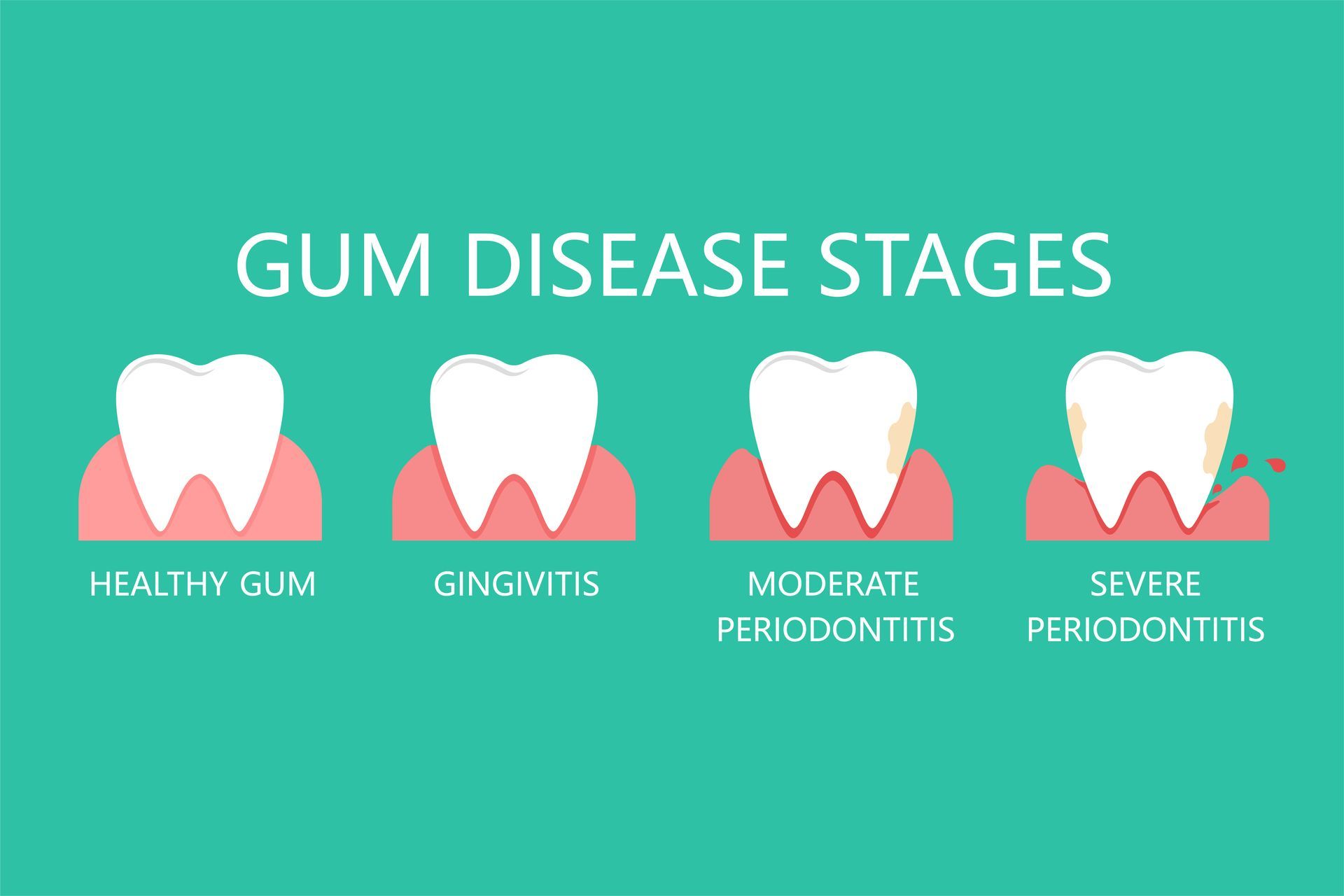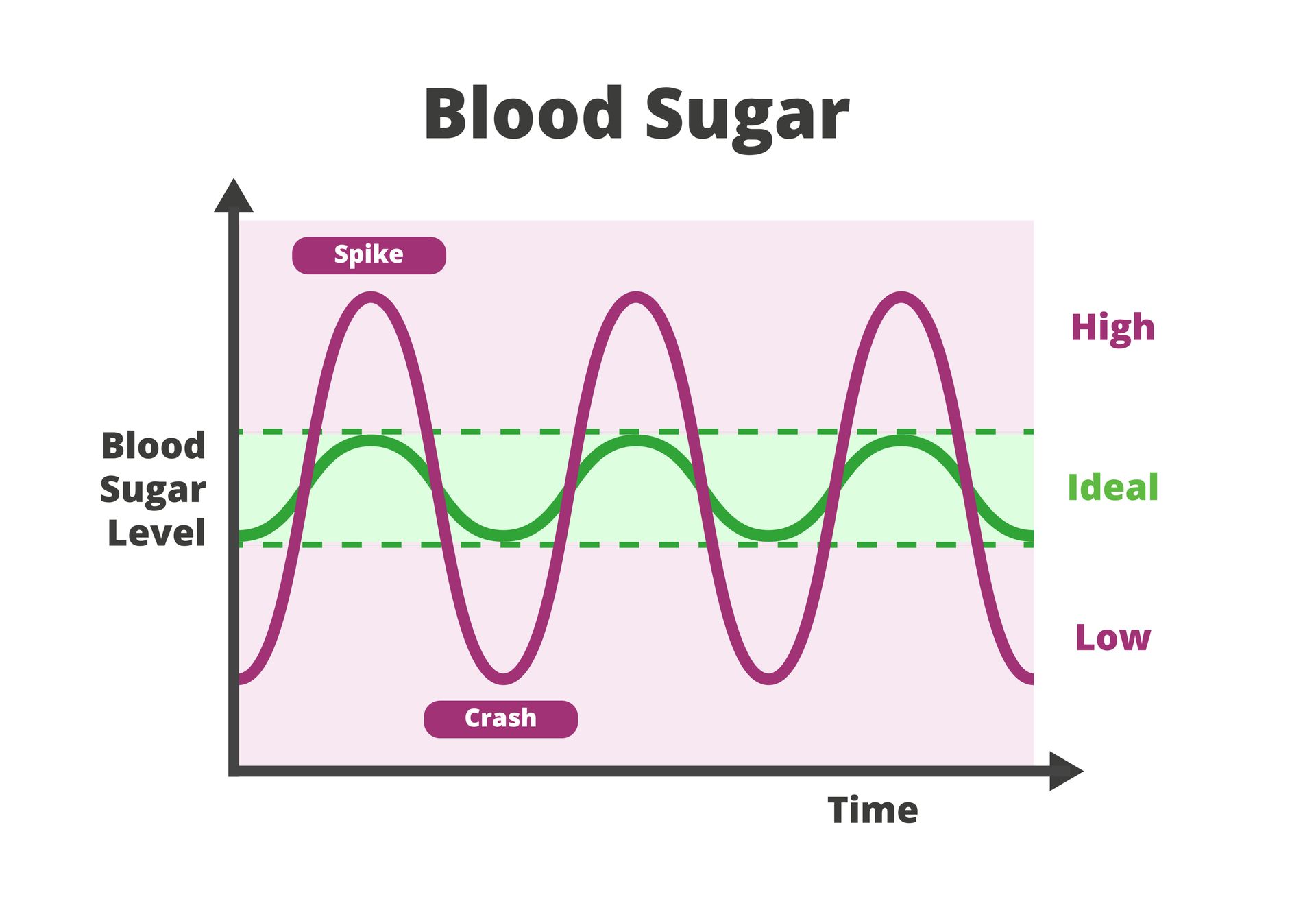Recent Posts
The Link Between Gum Disease and Blood Sugar

When most people think about gum disease, they picture bleeding gums, bad breath or dental pain. What they may not realize is that gum disease doesn’t just affect the mouth; it also plays a critical role in overall health, particularly blood sugar control.
Increasingly, research shows that there is a strong link between gum disease (periodontitis) and blood sugar regulation, with implications for people living with diabetes as well as those at risk of developing it.
What Is Gum Disease?
Gum disease, also called periodontal disease, begins when bacteria build up along the gumline and form sticky plaque. If left untreated, plaque hardens into tartar and irritates the gums, leading to gingivitis, which is the earliest stage of gum disease. Symptoms may include swollen or bleeding gums, sensitivity or persistent bad breath.
If gingivitis progresses, it can turn into periodontitis. At this stage, infection spreads deeper into the tissues that support your teeth, causing the gums to recede, pockets of bacteria to form and in severe cases, tooth loss. Beyond dental complications, periodontitis can trigger systemic inflammation that affects other areas of the body, including how your body processes sugar.
The Two-Way Connection: Gum Disease and Diabetes
Scientists have found a bidirectional relationship between gum disease and diabetes. This means each condition can make the other worse.
- Gum Disease Can Worsen Blood Sugar Control:
The chronic inflammation from gum disease releases chemicals into the bloodstream that make it harder for the body to regulate glucose. This creates insulin resistance, meaning your cells don’t respond properly to insulin. As a result, blood sugar levels rise, which can make managing diabetes significantly harder.
- High Blood Sugar Fuels Gum Disease: On the other hand, when blood sugar levels are high, excess sugar in saliva feeds harmful bacteria in the mouth. This increases the risk of infections and makes it easier for gum disease to progress. People with uncontrolled diabetes are more likely to experience severe periodontitis and slower healing after dental treatments.
Warning Signs to Watch For
Even in the early stages, gum disease can be silent, so it’s important to recognize the warning signs. These include:
- Gums that bleed when brushing or flossing
- Red, swollen or tender gums
- Receding gumlines
- Loose or shifting teeth
- Persistent bad breath or bad taste in the mouth
If you notice these symptoms, seeking care right away can prevent the condition from worsening and allow you to better control your blood sugar.
Protecting Your Oral and Overall Health
The good news is that gum disease is preventable and manageable with consistent care. Here are steps you can take:
- Maintain Strong Oral Hygiene Habits:
Brush twice daily with fluoride toothpaste, floss once a day, and consider using an antibacterial mouth rinse. Consistency is key to reducing plaque buildup and preventing gum irritation.
- Get Regular Dental Checkups: Professional cleanings remove tartar that cannot be brushed away at home. Dentists can also spot early signs of gum disease before it causes major damage.
- Manage Blood Sugar Levels:
For those with diabetes, controlling blood sugar through diet, medication and exercise is essential not only for overall health but also for reducing oral health complications.
- Avoid Smoking:
Smoking restricts blood flow to the gums, reduces healing and makes gum disease harder to treat.
- Stay Hydrated and Choose Nutritious Foods:
Drinking water and eating a diet rich in whole foods supports both oral health and blood sugar stability.
Why This Connection Matters
Poor oral health doesn’t stay in the mouth; it can directly affect chronic conditions like diabetes. Conversely, conditions like diabetes make oral care even more vital. For patients, this means that seeing your dentist regularly is important for both your teeth and your overall health and wellness.
Providing Exceptional Dental and Diabetes Care in Bellaire, Conroe, Sugar Land and Throughout Houston
At St. Hope Healthcare, we recognize that oral health and general health go hand in hand. Our team provides comprehensive care that supports both your dental needs and your long-term wellness. Whether you’re managing diabetes, noticing signs of gum disease or simply want to take a proactive approach to your health, we’re here to help.
Don’t wait until small issues become big problems. Schedule an appointment with St. Hope Healthcare today by calling (713) 778-1300.









